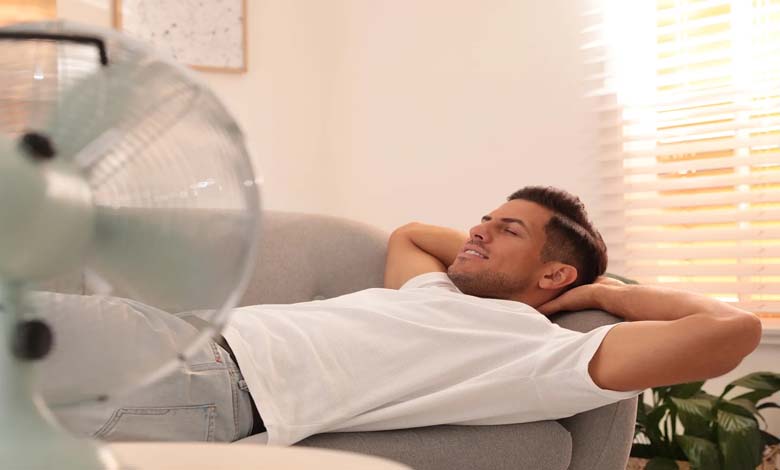Does sleeping with a fan pose a risk to heart health?

On hot nights, many people find it nearly impossible to sleep without a fan. By circulating the air and creating a cooling effect, the fan provides a sense of relief that can make falling asleep easier. But a common concern arises: could sleeping with a fan actually harm your heart?
-
Doctors Warn Against Sleeping on Your Stomach: What’s the Reason?
-
Why Should You Avoid Sleeping on the Couch?
- The immediate benefits of a fan
Before examining potential risks, it’s important to highlight the advantages:
- Body temperature regulation: a cooler environment helps reduce thermal stress and promotes deeper sleep.
- Improved air circulation: especially useful in poorly ventilated rooms.
- Reduced sweating: helps prevent nighttime dehydration.
These effects can indirectly support the heart, as less effort is required from the cardiovascular system when the body is not struggling with heat.
-
Sleeping in this position would reduce the risk of having bad dreams
-
Children sleeping: 5 mistakes we all make as parents that should be avoided
- Potential concerns
Some experts point to possible downsides:
- Dry air and irritation: continuous airflow can dry out the skin, throat, and nasal passages, causing discomfort.
- Allergies and dust: fans may stir up dust and allergens, taxing the immune system.
- Temperature imbalance: exposure to direct cool air, especially on the chest, may cause chills and disrupt body temperature regulation.
- Fan use and cardiovascular health: myth or reality?
There is no strong scientific evidence that sleeping with a fan directly causes heart disease. However, in certain situations, it might indirectly affect cardiovascular health:
-
Studies Reveal Alarming Neurological Effects of Fragmented Sleep on Long-Term Brain Health
-
The Frightening Effects of Fragmented Sleep on Brain Health: What Science Reveals
- For people with hypertension or heart failure, constant cold air may trigger vasoconstriction (narrowing of blood vessels), which can increase blood pressure.
- Thermal stress at night (either from overheating or from excessive cooling) can interfere with heart rhythm in vulnerable individuals.
- Poor sleep quality caused by irritation, dryness, or disturbed breathing can indirectly harm the heart, as chronic lack of restorative sleep is a well-established risk factor for cardiovascular disease.
- Practical tips for safe use
- Point the fan towards a wall to create gentle, indirect airflow.
- Clean the blades regularly to reduce dust and allergens.
- Avoid directing airflow straight at your face or chest.
- Stay hydrated to counteract dry air.
- If you have existing heart conditions, consult your doctor if you experience palpitations or discomfort when using a fan at night.
-
Chronic heart failure worsens at night: symptoms to watch out for
-
Study: Excessive Sleep Increases Risk of Mortality
Sleeping with a fan is not inherently dangerous for heart health. In fact, in hot and poorly ventilated environments, it may even ease cardiovascular stress by keeping the body cooler. However, improper use can lead to discomforts such as dryness, allergies, and disrupted sleep, which may indirectly affect long-term heart health.
The key lies in balanced use: proper orientation, regular cleaning, and moderation.












